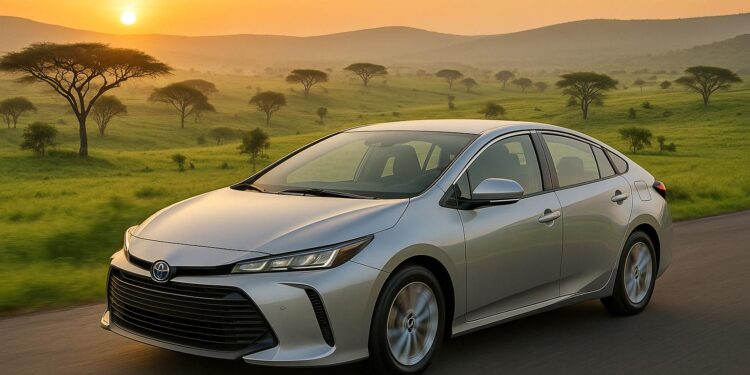Looking for a fuel-efficient car in Tanzania? Here’s what you need to know: rising fuel prices and a push for greener options have made hybrids, compact gasoline cars, and even electric vehicles popular choices in 2025. Whether you’re navigating city traffic in Dar es Salaam or tackling rural roads, there’s a vehicle to match your needs.
Key Highlights:
- Hybrids like the Toyota Prius, Corolla Hybrid, and Suzuki Escudo Hybrid save fuel while offering reliability for urban and some rural areas.
- Compact gasoline cars such as the Mazda Demio and Honda Fit are affordable, easy to maintain, and great for city driving.
- Electric vehicles (EVs) like the Nissan Leaf and BYD Dolphin provide zero-emission options but depend on charging infrastructure, which is still limited in Tanzania.
Quick Overview:
- Best for Cities: Toyota Prius Hybrid, Honda Fit, Mazda Demio
- Best for Mixed Roads: Suzuki Escudo Hybrid
- Eco-Friendly Picks: Nissan Leaf, BYD Dolphin (electric)
- Affordable Options: Mazda Demio, Honda Fit
Each car balances fuel savings, maintenance costs, and suitability for Tanzanian roads. Keep reading for detailed insights on these models and their pros and cons.
Here are Top 5 Most Fuel-Efficient Cars in Uganda and why
1. Toyota Prius Hybrid
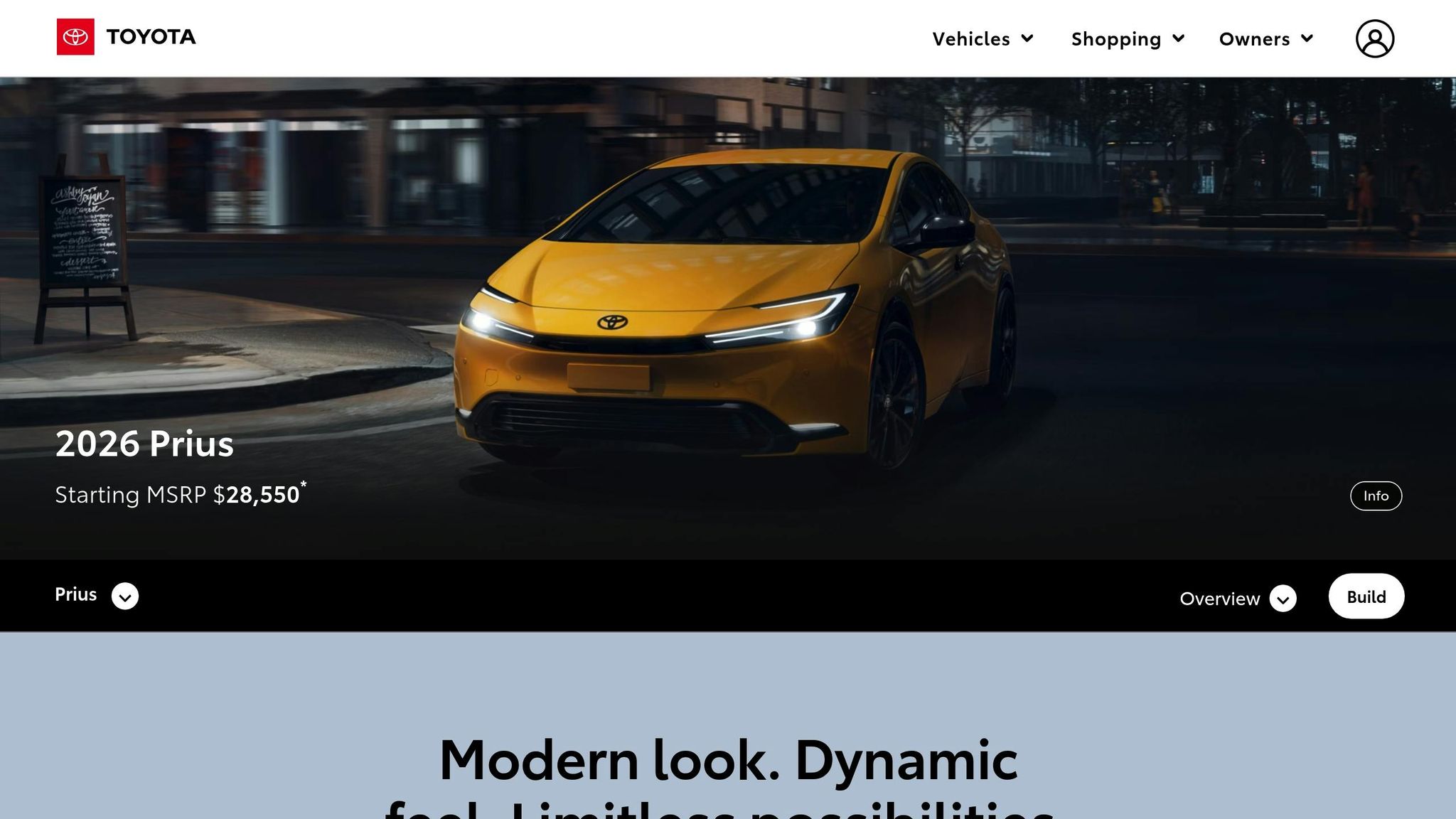
The Toyota Prius Hybrid is a well-known name worldwide for its fuel efficiency, and it’s gaining traction in Tanzania’s growing automotive market. This trailblazing hybrid pairs a gasoline engine with an electric motor, offering impressive fuel savings while maintaining Toyota’s reputation for dependability. Let’s take a closer look at its performance and features.
Fuel Efficiency
The Toyota Prius Eco Hybrid model boasts an impressive fuel efficiency of 56 mpg – about 4.2 liters per 100 kilometers. Its hybrid system automatically switches between electric and gasoline power, adapting to different driving conditions. For city driving, the electric motor takes the lead, making stop-and-go traffic more economical. On the highway, the gasoline engine kicks in to handle higher speeds and provide extra torque. This smart system not only enhances fuel efficiency but also helps drivers save money in the long run.
Price Range (USD)
While exact pricing for the Prius in Tanzania isn’t readily available, Japanese imports like this model are generally considered affordable. The availability of spare parts and competitive pricing make the Prius an appealing option for Tanzania’s growing middle class, especially for those prioritizing fuel-efficient vehicles.
Suitability for Tanzanian Roads
The Prius shines in urban settings, making it a great fit for cities like Dar es Salaam and Arusha. Its compact design and hybrid efficiency are well-suited for city traffic, where maneuverability and fuel savings are key. However, it’s less ideal for rural areas with rough or unpaved roads. The Prius is designed with urban streets in mind, and challenging terrains could lead to higher maintenance needs and costs.
Maintenance and Spare Parts Availability
One of the Prius’s strong points is the support provided by Toyota’s extensive service network. Spare parts are readily available, and maintenance is reliable and efficient. This makes owning a hybrid like the Prius less daunting and adds to its appeal for Tanzanian drivers.
2. Mazda Demio (Mazda2)

The Mazda Demio, known as the Mazda2 in international markets, is a compact car that has become a favorite among Tanzanian drivers. Its combination of practicality and efficient design makes it a go-to choice for those seeking an economical vehicle.
Fuel Efficiency
One of the standout features of the Demio is its impressive fuel efficiency. Its engine is designed to keep fuel consumption low, whether you’re navigating city streets or cruising on the highway. This makes it a cost-effective option for daily commutes and longer trips alike.
Price Range
Used Mazda Demio models strike a balance between affordability and modern features. With options spanning various model years, buyers can find a version that suits their budget without sacrificing quality.
Suitability for Tanzanian Roads
The compact size of the Demio is a major advantage for urban driving. It’s perfect for maneuvering through the bustling streets of cities like Dar es Salaam and Mwanza. However, it’s worth noting that the Demio is best suited for paved roads and standard driving conditions, rather than the rougher terrains often found in rural areas.
Maintenance and Spare Parts Availability
Mazda Demio owners in Tanzania benefit from a well-established service network. Maintenance and repairs are straightforward, thanks to the availability of spare parts and service centers across the country, adding to the car’s overall reliability.
3. Honda Fit (Jazz)
Building on the efficient design of the Mazda Demio, the Honda Fit – known globally as the Honda Jazz – has become a favorite among Tanzanians seeking a practical and fuel-conscious compact car for city life.
Fuel Efficiency
While exact fuel consumption figures aren’t provided, the Honda Fit is widely appreciated for its ability to stretch a tank of gas, making it a dependable choice for daily urban commutes.
Price Range (USD)
Though specific pricing in USD isn’t listed, the Honda Fit is considered a budget-friendly option, especially appealing to first-time car buyers in Tanzania.
Suitability for Tanzanian Roads
With its compact size and nimble handling, the Honda Fit is well-suited for navigating the bustling streets of cities like Dar es Salaam and Arusha. Its ease of maneuvering and parking makes it a practical choice for urban environments.
4. Suzuki Escudo (Vitara) Hybrid
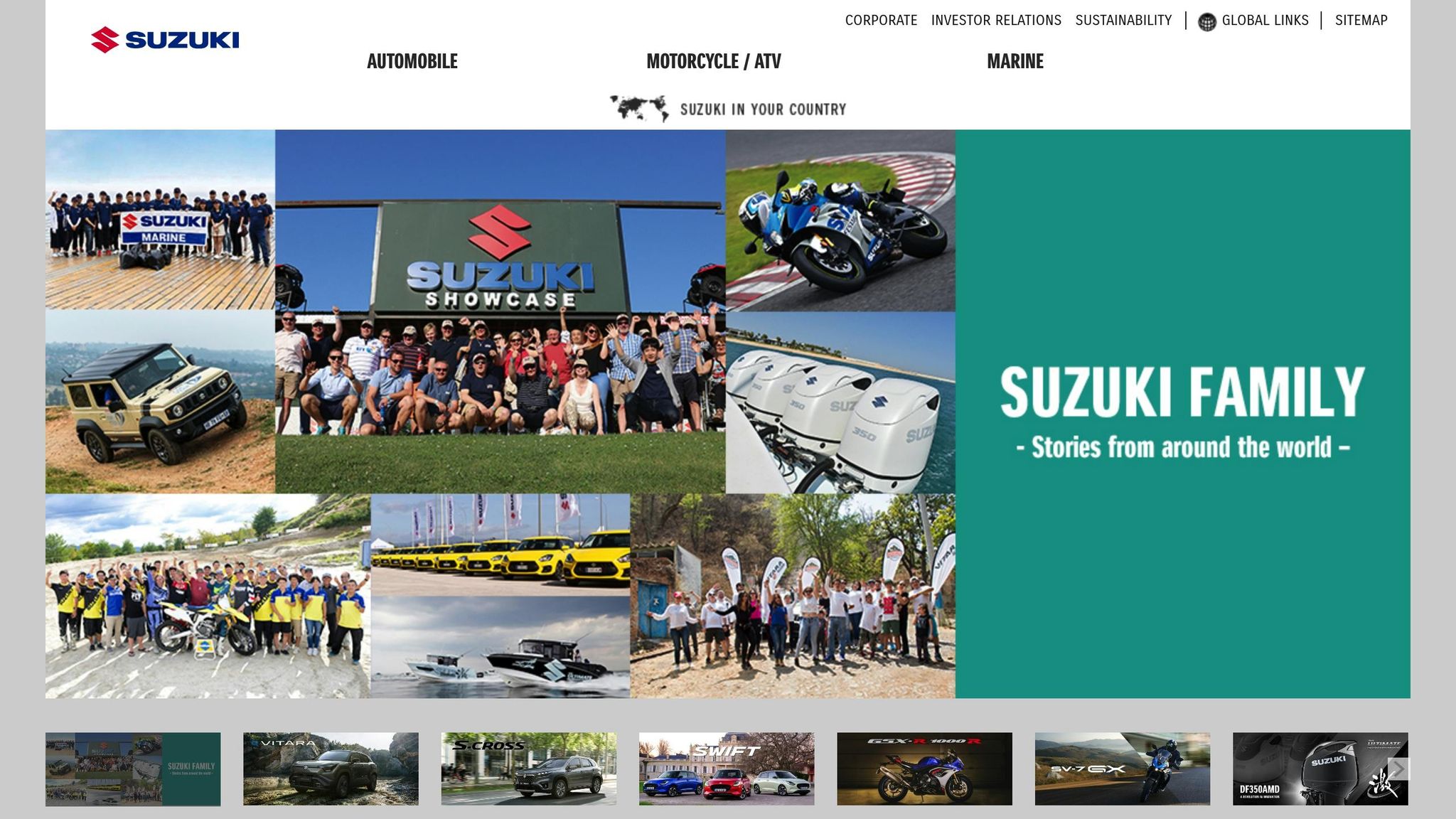
The Suzuki Escudo (Vitara) Hybrid strikes a balance between fuel efficiency and off-road capabilities. This compact SUV is built with hybrid technology, making it a reliable option for navigating Tanzania’s diverse road conditions. Whether you’re commuting in the city or exploring rural areas, this vehicle is designed to meet your needs.
Fuel Efficiency
Powered by a 1.5-liter K15C Dualjet I4 HEV system, the Suzuki Escudo Hybrid achieves an impressive fuel economy of 22.5 km/L (around 53 mpg). Its combination of a gasoline engine and an electric motor ensures efficient fuel usage, whether you’re stuck in city traffic or cruising on the highway.
Price Range (USD)
While the exact price of the hybrid model in Tanzania isn’t widely documented, insights can be drawn from the pricing of used, non-hybrid Suzuki Escudo models. For instance, 2005 models are typically priced between $2,050 and $9,870, and 2008 models range from $2,380 to $6,940. The advanced hybrid technology likely places the cost of the newer model at a premium compared to these older versions.
Suitability for Tanzanian Roads
The Escudo is often regarded as an ideal choice for those seeking a small SUV with strong off-road capabilities and versatility. With features like higher ground clearance and optional all-wheel drive, it is well-equipped to handle Tanzania’s mix of paved urban streets and rugged rural trails. Whether you’re navigating unpaved roads or tackling challenging terrain, the Escudo Hybrid delivers excellent performance without compromising on fuel efficiency.
Maintenance and Spare Parts Availability
One of the advantages of owning a Suzuki Escudo Hybrid is the support of a well-established Japanese service network. This ensures that spare parts are easy to find and maintenance remains affordable, even in less urbanized areas.
sbb-itb-d9186c2
5. Nissan Leaf (Electric)
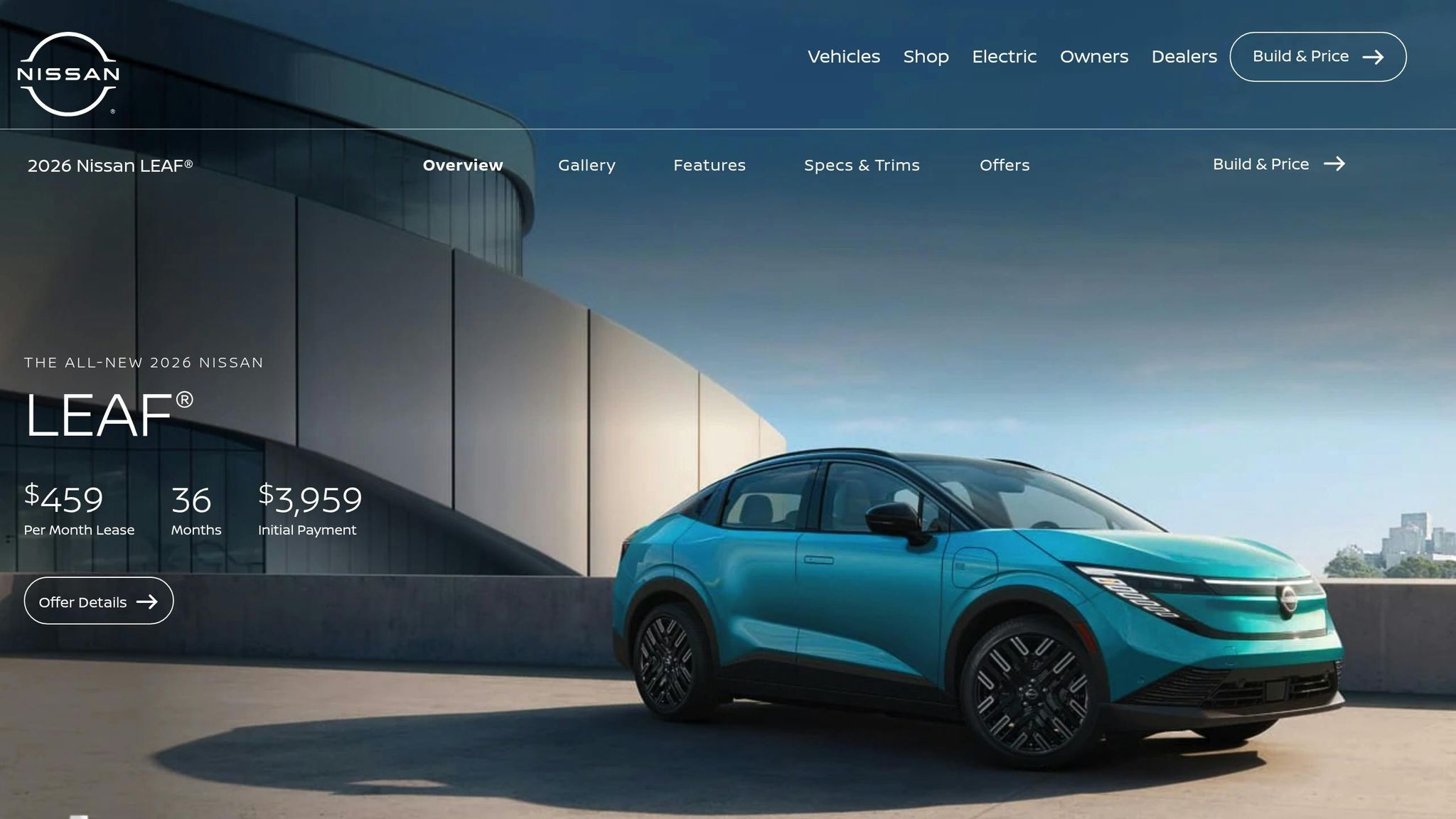
The Nissan Leaf stands out as a fully electric vehicle with zero tailpipe emissions, offering an eco-friendly transportation option. As one of the best-selling electric cars globally, it provides Tanzanian drivers with an alternative to traditional gas-powered vehicles.
Fuel Efficiency
Because the Nissan Leaf runs solely on electricity, it doesn’t rely on gasoline at all. Its efficiency is measured in kilowatt-hours per 100 miles (kWh/100mi). Recent models boast an impressive efficiency of about 120 MPGe (miles per gallon equivalent), which translates to significantly lower operating costs compared to conventional cars.
The standard version comes with a 40 kWh battery, delivering a range of around 150 miles (241 km) per charge. For those needing more range, the Leaf Plus offers a 62 kWh battery, extending the driving range to approximately 226 miles (364 km). This makes it a practical choice for daily commutes in cities like Dar es Salaam, where distances are typically manageable within these ranges.
Suitability for Tanzanian Roads
The Nissan Leaf performs exceptionally well on paved roads and highways, making it a great fit for urban areas like Dar es Salaam, Arusha, and Mwanza. Its instant torque ensures smooth and responsive acceleration, which is especially handy in stop-and-go traffic.
However, there are challenges to consider. Tanzania’s charging infrastructure is still developing, and reliable access to electricity is crucial for keeping the Leaf running. Inconsistent power supply in some areas and the limited availability of charging stations outside major cities can make long-distance travel tricky. Additionally, with its relatively low ground clearance, the Leaf is less suited for unpaved rural roads or areas with poor road conditions.
Maintenance and Spare Parts Availability
One of the advantages of electric vehicles like the Nissan Leaf is their reduced need for routine maintenance – no oil changes, spark plugs, or transmission services are required. The battery typically comes with a warranty of up to 8 years or 100,000 miles, offering some peace of mind.
That said, availability of spare parts in Tanzania is still limited. Components like battery modules and electric motor parts often need to be imported, which can lead to delays and higher costs. Furthermore, finding mechanics skilled in electric vehicle repairs can be a challenge, particularly outside major cities. This makes maintenance a consideration for prospective buyers.
6. Toyota Corolla Hybrid
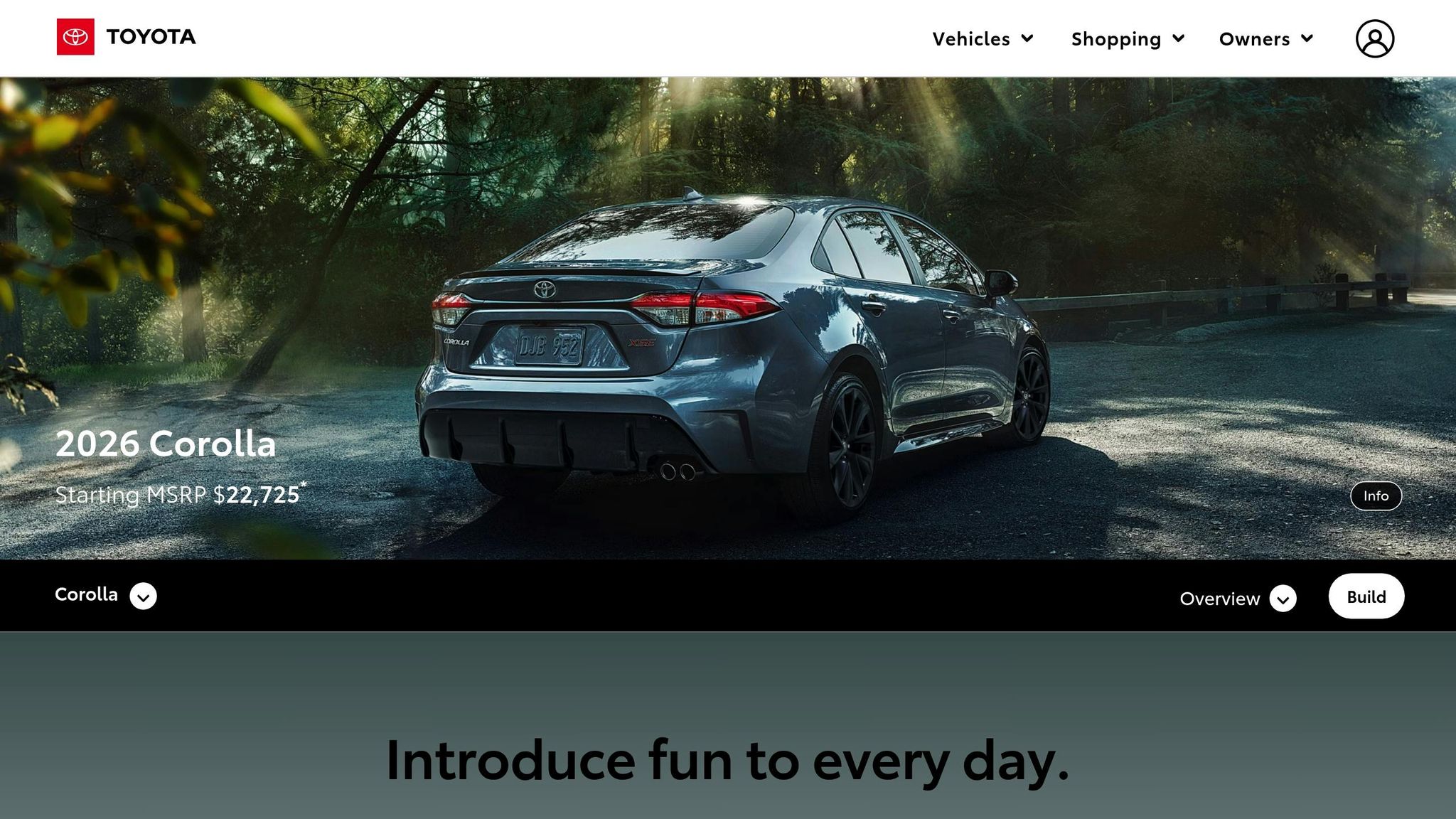
The Toyota Corolla Hybrid brings together Toyota’s trusted dependability and efficient hybrid technology, making it a smart choice for Tanzanian drivers looking for both fuel savings and everyday practicality. Its mix of affordability and efficiency makes it a solid option for city commutes and longer road trips. Let’s break down what makes this car stand out, starting with its fuel economy.
Fuel Efficiency
The Corolla Hybrid uses a system that charges its battery through regenerative braking and the engine’s operation. This eliminates the need for external charging, which is a big plus considering Tanzania’s limited charging infrastructure. The hybrid system shines in stop-and-go city traffic, capturing energy that would otherwise go to waste and boosting overall efficiency.
Price Range (USD)
The price of a Corolla Hybrid in Tanzania depends on factors like the model year, mileage, and condition. While new models are competitively priced in global markets, many Tanzanian buyers opt for imported used models, which are more budget-friendly. Japanese imports, in particular, are popular because spare parts are widely available, and servicing is straightforward. Although the upfront cost might be higher than some conventional cars, the fuel savings over time make it an economical choice for many drivers.
Suitability for Tanzanian Roads
The Corolla Hybrid handles a variety of road conditions with ease. Its compact design and efficient hybrid system make it perfect for navigating congested city streets in places like Dar es Salaam and Arusha. At the same time, it remains stable and reliable for highway travel between major cities, making it a versatile option.
Maintenance and Spare Parts Availability
Toyota’s strong presence in Tanzania simplifies maintenance. Spare parts are readily available through official Toyota dealerships in cities, and servicing costs are generally reasonable. For more specialized repairs, options are typically found in larger urban centers.
Tanzanian car buyers prioritize factors like purchase price, operating costs, and practicality. The Toyota Corolla Hybrid hits the mark in all these areas, offering a dependable and fuel-efficient solution for drivers across the country.
7. BYD Dolphin (Electric)

The BYD Dolphin is a compact electric car making its debut in the Tanzanian market, offering cutting-edge features at an accessible price point. As China’s BYD continues to expand globally, this vehicle represents a shift toward cleaner energy by completely removing the need for gasoline. With its modern design and advanced lithium iron phosphate battery, it’s an attractive choice for eco-conscious drivers looking to transition to electric mobility. It’s built to deliver a smooth and efficient experience for urban commuters.
Fuel Efficiency
The BYD Dolphin relies entirely on its advanced lithium iron phosphate battery, delivering an impressive driving range while keeping charging costs low. It also features regenerative braking, which helps improve efficiency by capturing energy during deceleration – making every drive more economical.
Price Range (USD)
Globally, the BYD Dolphin is competitively priced, and even with Tanzanian import duties and taxes, it remains an affordable option. Thanks to reduced maintenance needs and the absence of fuel expenses, the overall cost of ownership can be favorable compared to traditional gas-powered vehicles.
Suitability for Tanzanian Roads
This car is tailored for urban environments, with its compact design making it perfect for navigating crowded streets in cities like Dar es Salaam and Mwanza. The instant torque ensures smooth acceleration, especially in stop-and-go traffic. However, it performs best on paved or well-maintained roads. On rough rural terrain or in areas prone to flooding, its performance may be limited.
Maintenance and Spare Parts Availability
The BYD Dolphin requires relatively simple upkeep, such as tire rotations, brake checks, and software updates. Currently, authorized service centers are concentrated in major cities across Tanzania, but BYD is expanding its network in East Africa. As this growth continues, spare parts will become more accessible. Additionally, the battery pack comes with a manufacturer’s warranty, easing concerns about long-term reliability.
Advantages and Disadvantages
Let’s break down the pros and cons of fuel-efficient vehicles in the Tanzanian market. Each type – hybrid, gasoline, and electric – comes with its own set of strengths and challenges.
Hybrid vehicles, like the Toyota Prius Hybrid, Suzuki Escudo (Vitara) Hybrid, and Toyota Corolla Hybrid, strike a balance between fuel efficiency and the reliability of a gasoline engine as a backup. This makes them a practical choice in areas with limited charging infrastructure. However, hybrids often come with a steeper upfront cost and can require more complex maintenance compared to traditional gasoline-powered cars.
Traditional gasoline vehicles, such as the Mazda Demio (Mazda2) and Honda Fit (Jazz), are popular for their reliability and the ease of finding service support across Tanzania. They’re generally more affordable to purchase upfront. That said, they lack the long-term fuel savings and reduced emissions that hybrid and electric options provide.
Electric vehicles (EVs), including models like the Nissan Leaf and BYD Dolphin, stand out for their zero tailpipe emissions and lower routine maintenance needs. Over time, their operating costs are typically lower. However, EVs come with challenges: a higher initial price tag, limited charging infrastructure, and range constraints for longer trips.
| Vehicle Category | Key Advantages | Main Disadvantages |
|---|---|---|
| Hybrid Models | Great fuel economy, gasoline backup, lower emissions | Higher upfront cost, more complex maintenance |
| Gasoline Models | Affordable purchase price, reliable, easy to service | Higher fuel costs, greater environmental impact |
| Electric Models | Zero emissions, low running costs, minimal maintenance | Costly upfront, limited charging options, range limits |
The cost factor plays a huge role in decision-making. While hybrids and EVs demand a larger initial investment, their lower operating costs can offset this over time. Gasoline models, on the other hand, are easier on the wallet upfront but can lead to higher expenses due to fluctuating fuel prices.
When it comes to convenience, gasoline cars are still the go-to choice for their widespread availability and ease of refueling. Hybrids offer a middle ground with better fuel savings but higher purchase costs, while EVs face hurdles like scarce charging stations and range concerns.
Conclusion
City drivers will find models like the Prius Hybrid and Honda Fit perfect for urban settings, thanks to their excellent fuel efficiency in stop-and-go traffic and ease of maneuvering through crowded streets. However, when you venture beyond the city, different vehicles are better suited to specific lifestyles and driving needs.
For families, hybrids such as the Toyota Corolla Hybrid and Mazda Demio (Mazda2) offer a reliable mix of fuel efficiency and dependability. Meanwhile, the Honda Fit stands out for its low maintenance costs, excellent fuel economy, and easy access to spare parts.
If your driving involves a mix of city streets and rural roads, the Suzuki Escudo (Vitara) Hybrid strikes a great balance, combining fuel-saving technology with the versatility needed for varied terrains.
For those ready to adopt electric vehicles, options like the Nissan Leaf or BYD Dolphin are ideal for predictable daily commutes and home charging setups, provided there’s reliable access to charging infrastructure.
Japanese automakers dominate the market, offering extensive service networks and readily available spare parts. Toyota, in particular, shines with its strong presence, ensuring top-notch support for models like the Prius Hybrid and Corolla Hybrid.
When it comes to fuel-efficient cars, hybrids provide an excellent middle ground, delivering both versatility and reduced fuel costs. Gasoline-powered models remain a budget-friendly and reliable choice, while electric vehicles offer lower operating costs in areas with accessible charging stations. Models like the Toyota Prius and Corolla Hybrid also help drivers save on fuel over time while contributing to a smaller environmental footprint.
Ultimately, your choice should factor in your daily driving habits, budget, and access to service or charging facilities. Tanzania’s market for fuel-efficient vehicles offers a broad range of options, ensuring that every driver can find a model that fits their needs. This variety reflects the country’s growing focus on practical and efficient transportation solutions.
FAQs
What challenges come with owning an electric vehicle in Tanzania, and how can they be addressed?
Owning an electric vehicle (EV) in Tanzania comes with its set of hurdles. Limited charging stations, steep initial costs, and a shortage of technical support can make it tough for EV owners to enjoy the full advantages of their vehicles.
To tackle these issues, a collaborative effort between the government and private sector is key. Expanding charging networks in cities and along major highways would make EVs more practical for everyday use. Offering tax breaks or subsidies could also help lower the financial barrier for potential buyers. On the maintenance front, training local mechanics and setting up dedicated EV service centers would provide owners with dependable support when needed.
What are the differences in maintenance and long-term cost savings between hybrid and traditional gasoline cars?
Hybrid vehicles tend to have lower long-term expenses compared to traditional gas-powered cars, largely because they use fuel more efficiently and depend less on gasoline. By combining gas and electric power, hybrids cut down both fuel consumption and emissions.
When it comes to maintenance, hybrids often need less frequent servicing for parts like brakes, thanks to regenerative braking systems that help extend their lifespan. That said, hybrid battery systems might need replacing after several years, which can come with a hefty price tag. In contrast, gasoline cars generally have higher ongoing fuel and maintenance costs but don’t involve the expense of replacing a hybrid battery. Deciding between the two ultimately comes down to your driving habits, budget, and how much importance you place on fuel efficiency and reducing environmental impact.
What should I consider when deciding between a hybrid, gasoline, or electric car for driving in Tanzania?
When choosing between a hybrid, gasoline, or electric car for Tanzanian roads, it’s important to weigh factors like fuel efficiency, road conditions, and operating costs.
Hybrid cars, such as the Toyota Prius, excel in fuel efficiency and are perfect for city commutes. For rough or unpaved roads, gasoline-powered vehicles like the Suzuki Escudo are a better fit, thanks to their higher ground clearance. On the other hand, electric cars, like the BYD Dolphin, stand out for their low running costs. However, their practicality may be limited due to the region’s sparse charging infrastructure.
Consider your daily driving habits, the availability of fuel or charging options, and long-term maintenance expenses to determine the best fit for your needs and budget.
Related Blog Posts
- 5 Most Fuel-Efficient Cars Available in Tanzania 2025
- Best used cars in Tanzania 2025
- Most Fuel-Efficient Cars for Tanzanian Roads in 2025
- Car Prices in Tanzania in 2025: What’s Affordable Now?

